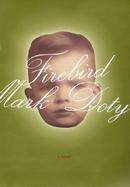It must have been 2000 or 2001 when Cathal O’Searcaigh visited Georgia Southern University’s Center for Irish Studies, and I heard him recommend Mark Doty’s book Heaven’s Coast (1996). When an Irish writer tells an audience that another writer has a way with language, the audience ought to take note, and I did. If John Muir suggested to me that I visit a certain forest, then, if possible, I would start walking toward that forest. After attending to the recommendation, I purchased a paperback copy of Doty’s memoir, and began to appreciate what O’Searcaigh was pointing to in Doty’s work. Here is a brief excerpt from the memoir that might convey an achievement in tone that marks few writers:
Then there’s the notion of the seals as merman, of the creature which embodies the two worlds, unlike us, who live firmly in one medium, despite our brief visits to the other. To be of the coast, a mer-being, is to partake of the liminal, that watery zone of possibility where one thing becomes another, where the rules of one world are suspended as we enter into the next. The coast is the shifting zone of change and transformation. A coast is not a line really but a borderland, site of continual conversation between elements which transforms both.
Now I will read Fire to Fire, and I anticipate other people, not just proud Texans, will pick up Doty’s works, and find themselves transformed by the language.

